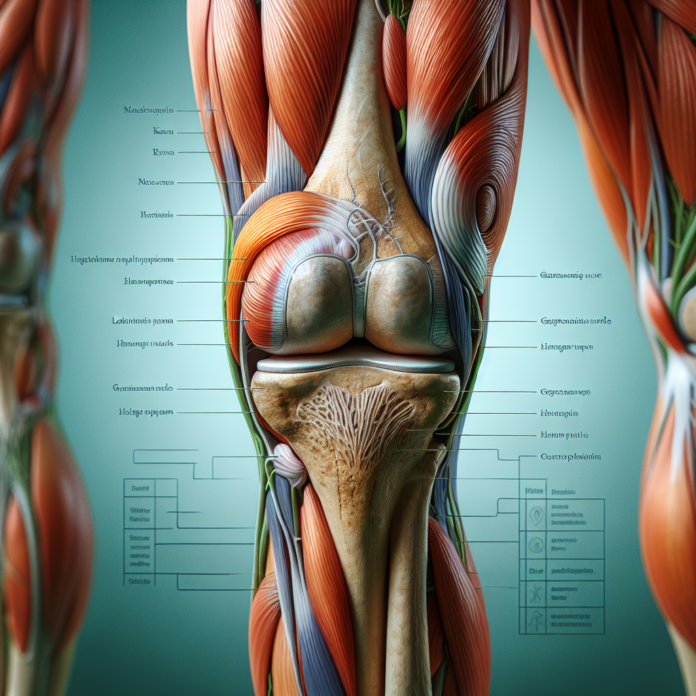When you experience swelling in the back of your knee without a corresponding injury or noticeable swelling elsewhere, it can point to specific underlying issues. Unlike general knee injuries such as an ACL tear, which cause widespread swelling due to the extensive damage and inflammation, localized swelling often suggests particular conditions. Understanding these conditions is crucial for proper diagnosis and treatment.
Arthritis as a Cause
One of the common causes of swelling at the back of the knee is arthritis. Arthritis involves the degeneration of cartilage and joint tissues, leading to inflammation and fluid buildup. When this occurs in the posterior (back) aspect of the knee, it can result in visible swelling. This type of swelling might not be extensive but can be troubling nonetheless.
Arthritis in the knee often affects the back of the femur and tibia, the two main bones forming the knee joint. Over time, the wear and tear from everyday activities can exacerbate this condition. Weight-bearing joints like the knees are particularly susceptible due to the constant pressure and movement they endure. Monitoring symptoms and managing them through physical therapy, lifestyle changes, and possibly medication can help alleviate discomfort and maintain knee function.
Meniscus Tear and Its Implications
Another possible cause of swelling in the back of the knee is a torn meniscus. The meniscus is a C-shaped cartilage that acts as a cushion between the femur and tibia. Tears often occur in the posterior horn of the meniscus, either on the medial (inner) or lateral (outer) side of the knee. This can lead to localized swelling and pain, especially during movement.
Meniscus tears can stem from sudden twists or turns often associated with sports activities. However, they can also result from degenerative processes as the cartilage weakens with age. Symptoms might include a popping sensation at the time of injury, swelling developing over a day or two, difficulty bending or straightening the knee, and a feeling of the knee locking or giving way.
Treatment for meniscus tears varies depending on the severity and the patient’s activity level. Options range from rest and physical therapy to surgical intervention. Minimally invasive procedures such as arthroscopy can be effective in repairing or trimming the damaged cartilage.
Baker’s Cyst: A Potential Factor
A Baker’s cyst is another condition that can cause swelling at the back of the knee. Also known as a popliteal cyst, this occurs when excess joint fluid is pushed into the space behind the knee. It is often associated with other knee problems like arthritis or a meniscus tear.
Baker’s cysts may cause a bulge and a feeling of tightness behind the knee, which can worsen with physical activity or prolonged standing. While a Baker’s cyst itself is not usually dangerous, it can cause discomfort and lead to complications if it bursts, causing the fluid to leak into the calf region.
Managing a Baker’s cyst typically involves treating the underlying cause, such as arthritis or a meniscus tear. This may include aspiration to remove fluid, corticosteroid injections to reduce inflammation, or surgery in more persistent cases. Physical therapy can also help alleviate symptoms and improve joint function.
Other Potential Causes
In addition to these common causes, other factors may contribute to swelling at the back of the knee. These include:
- Injury or trauma: Sudden impacts or overuse can lead to swelling and inflammation as the body’s response to protect the joint.
- Infection: Although less common, infections in the knee joint or surrounding tissues can cause localized swelling and require prompt medical attention for antibiotics or more invasive treatments.
- Cysts and tumors: Rarely, benign or malignant growths can develop in the knee area, leading to swelling and necessitating further evaluation to determine the appropriate course of action.
Understanding the possible conditions that can cause localized swelling at the back of the knee is essential for seeking the right medical attention. Consulting with an orthopedic specialist can provide a clearer diagnosis and tailored treatment plan.
If you’re experiencing swelling at the back of your knee, it’s crucial to monitor your symptoms and avoid activities that exacerbate them. Engaging in low-impact exercises, maintaining a healthy weight, and keeping your joints flexible can all contribute to overall knee health.
Seeking medical advice early can prevent more severe complications and ensure that you receive the appropriate treatment to address the source of your symptoms. Stay proactive about your knee health, and consult a healthcare professional to explore the underlying causes and effective remedies for localized swelling.
